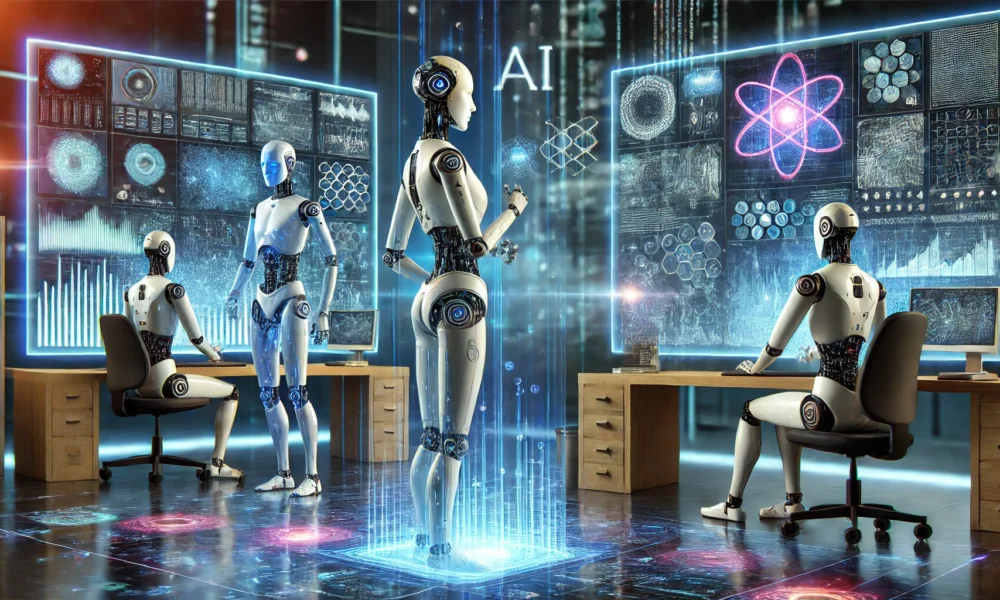Groundbreaking Alliance Forms to Boost India’s Deep Tech Startups
A coalition of eight prominent U.S. and Indian venture capital and private equity firms, including Accel, Blume Ventures, Celesta Capital, and Premji Invest, has joined forces to invest over $1 billion in India’s deep tech startups over the next decade, enhancing U.S.-India tech collaboration.
Tackling Funding Concerns in India’s Startup Ecosystem
This alliance responds to persistent funding challenges highlighted by Indian Commerce Minister Piyush Goyal, who faced backlash for criticizing local startups for lacking innovation and focusing primarily on food delivery services. In contrast, founders pointed out that access to capital for deep tech ventures is scarce in India. The coalition aims to address these issues by channeling long-term private investment into technologies that have historically struggled for funding.
Unprecedented Collaboration Among Investors
The newly formed India Deep Tech Investment Alliance is notable because it formally unites investors who traditionally compete for deals. While collaboration typically happens on a case-by-case basis, this group is committed to pooling resources and efforts under a unified banner.
Members Commit to Long-Term Investment
The alliance, consisting of Celesta Capital, Accel, Blume Ventures, Gaja Capital, Ideaspring Capital, Premji Invest, Tenacity Ventures, and Venture Catalysts, announced its formation following a ₹1 trillion (approximately $11 billion) Research, Development, and Innovation (RDI) scheme approved by the Indian government aimed at promoting deep tech R&D.
Strategic Focus on Indian-Domiciled Startups
Each member of the alliance will commit private capital over the next 5 to 10 years to support local deep tech startups. As many notable deep tech companies with Indian founders are currently based in the U.S., the new RDI scheme requires local incorporation, which the coalition aims to leverage.
Providing Mentorship and Expanding Networks
Beyond funding, the alliance plans to offer mentorship and networking opportunities to startups, while also assisting portfolio companies with their expansion into the Indian market.
Navigating Geopolitical Challenges
Despite the complex geopolitical landscape, including recent tensions between the U.S. and India, the alliance is optimistic about India’s potential as a startup hub for foundational technologies like AI, semiconductors, and biotech.
Investment Opportunities for U.S. Companies
“India presents a particularly compelling market, not only for local companies but also for U.S. firms looking to expand,” noted Sriram Vishwanathan, founding managing partner at Celesta Capital, highlighting the alliance’s goal to invigorate the Indian startup ecosystem.
Focusing on Early-Stage Startups
The alliance’s initial focus will be on early-stage startups, from seed to Series B funding, with an eye on attracting further participation from both VC and private equity firms in the future.
Engagement with Government Policies
Members of the alliance intend to engage proactively with the Indian government to advocate for favorable policies, aiming to create a unified voice to support industry interests while adhering to RDI conditions.
Potential Risks and Rewards
While the collaborative effort is positioned as beneficial for the deep tech ecosystem, there’s an inherent risk that miscoordination could leave startups facing challenges. Nevertheless, optimism remains high for India’s ability to produce transformative technologies over the next decade.
“The future is bright: ambition, talent, and patient capital are converging to transform the Indian startup landscape,” stated Accel partner Anand Daniel.
Here are five FAQs regarding the U.S. and Indian VCs forming a $1B+ alliance to fund India’s deep tech startups:
FAQ 1: What is the purpose of the $1B+ alliance between U.S. and Indian VCs?
Answer: The alliance aims to fund and support India’s deep tech startups, fostering innovation and growth in sectors such as artificial intelligence, robotics, 5G, and biotechnology. By pooling resources and expertise, the VCs intend to accelerate the development of cutting-edge technologies in India.
FAQ 2: Which specific sectors will the alliance focus on?
Answer: The alliance will primarily concentrate on deep tech sectors, including artificial intelligence, machine learning, robotics, 5G communications, biotechnology, and other advanced technologies that have the potential for significant impact and scalability.
FAQ 3: How will this funding impact Indian startups?
Answer: The partnership is expected to provide significant financial resources, mentorship, and access to global markets, enabling Indian startups to scale their operations, innovate rapidly, and compete on an international level. This could lead to job creation and technological advancements within India.
FAQ 4: Are there any eligibility criteria for startups to secure funding from this alliance?
Answer: While specific criteria may vary, startups typically need to demonstrate innovative technology, scalability potential, a strong business model, and a capable management team. Startups will likely need to apply through designated channels or partners associated with the alliance.
FAQ 5: How can startups apply for funding through this alliance?
Answer: Startups interested in funding from this alliance should prepare a comprehensive business plan and proposal. They can monitor announcements from the participating VCs for application procedures, investment windows, and specific criteria. Networking at industry events and utilizing platforms connected to the alliance may also enhance visibility to potential investors.





